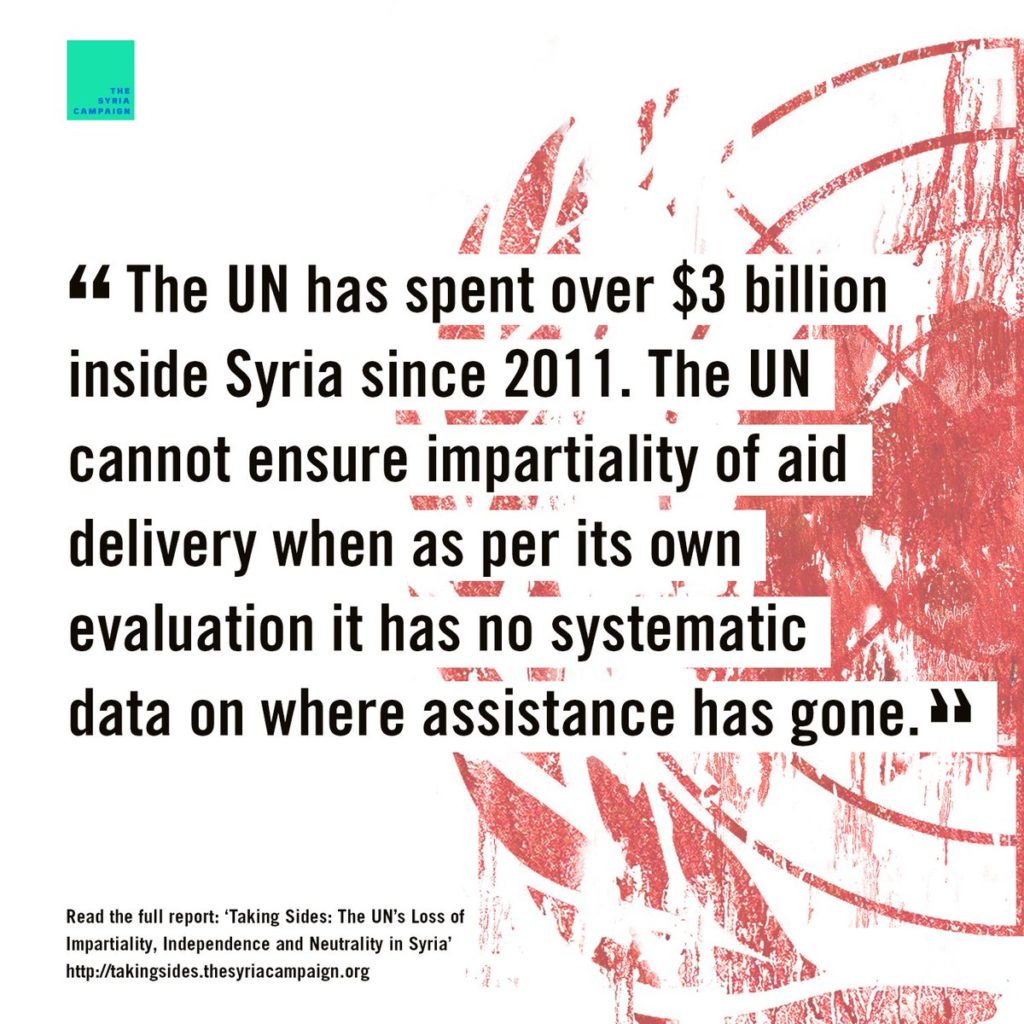“Taking Sides” report on the UN

Since the Syrian conflict began, civilians have felt betrayed and abandoned by the international community, most notably the UN. In Syria, the UN has been perceived as working too closely with the regime, whether that’s by lodging its staff in hotels owned by regime allies, awarding contracts to organisations affiliated with the regime, or waiting for permission to deliver aid to besieged opposition areas.
In 2016, we set out to write a two-page brief about the UN’s role in Syria and its loss of impartiality there. But, as we began digging, we realised that this would be a much larger project and one that ended up taking three months to complete.
We conducted interviews with former UN staff members, Syrian organisations, and international NGOs to hear their account of the UN’s behaviour in Syria, and we trawled through publicly available information that had been buried in little-read reports. Key to our work was a review OCHA commissioned of its aid programme in Syria.
What made our report so impactful were the current and former UN staff who were angry with the way operations in Syria were being handled and who were willing to expose this. We promised them anonymity, but cultivating trust with these individual contacts was also key. We made sure wherever possible to meet with them face to face and listen to any concerns they might have.
Using data from the World Food Programme we made infographics to include in the report and hired an editor and designer to ensure it was as polished as possible. We also asked lots of trusted sources to read early drafts of the report and suggest edits to ensure it was accurate. Sometimes this entailed making big cuts, but they only made the report stronger. We reviewed in detail public UN reports to find data that we could analyse and present in a clearer way.
UN convoys have even passed through besieged areas to reach other locations, again suggesting that Syrian government consent – not security – is the issue.
When the report, titled “Taking Sides: The United Nations’ loss of impartiality, independence and neutrality in Syria”, was published, its effect was immediate. It was covered by the Guardian on its front page, the BBC, Al Jazeera, and ABC News and was referenced by the Chatham House think tank. On Twitter, it was shared by Syria-focused organisations like Crisis Action, Syria UK, the Syrian Network for Human Rights, the Karam Foundation, and the Syria Institute, in addition to journalists like the Guardian’s Kareem Shaheen. It remains a legacy piece of work that exposes the UN’s failings in Syria.
What we learnt
A thoroughly researched report can enable you to challenge even the most respected of institutions, such as the UN. Building trust with a range of contacts will help you get the valuable inside information that you need.